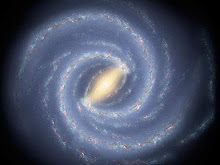Was Carnot misunderstood?
Nicolas Léonard Sadi Carnot (June 1, 1796 - August 24, 1832), “perhaps the greatest genius in the department of physical science at least that this century has produced" (19th), considered the father of the thermodynamics wrote the "Reflexions sur La Puissance Motrice du Feu"” with true philosophical caution, he avoids committing himself to this hypothesis; though he makes it the foundation of his attempt to discover how work is produced from heat." “The "two grand things" which Carnot originated and introduced were his idea of a "cycle" and the notion of its "reversibility,"” the foundation of “dynamical theory of heat”
His understanding of Robert Boyle, Jacques Charles and Joseph Louis Gay-Lussac theory of gases probably guided Carnot to explain the working of the steam engines based on their previous studies. On the other hand, the pioneers of the steam engine, concerned with steam consumption, used the lesser steam possible in the cylinder, added to the limited knowledge of fluids ( vapour alcohol is proposed by Carnot) led Carnot to primarily consider the expansion in the cylinder in his proposition for the operation of heat engines.
Carnot theories modernized, and in my personal opinion not totally interpreted, by Émile Clapeyron, guide Baron Kelvin, and Rudolf Clausius to lay the grounds for entropy and Second Law.
Rudolf Diesel mentioned Carnot as the mentor of his engine, and the combustion engine is explained in detail in his work.
Carnot, a great genius, referred in his work, what we call today cogeneration, proposed the recover of the condensation heat and introduced the concept of maximum power.
If Carnot had lived long, I believe that the ideal heat engine would be designed differently.
From a translation of Dr. Robert H. Thurston:
“Perhaps in low temperatures steam may be more convenient. We might conceive even the possibility of making the same heat act successively upon air and vapor of water. It would be only necessary that the air should have, after its use, an elevated temperature, and instead of throwing it out immediately into the atmosphere, to make it envelop a steam-boiler, as if it issued directly from a furnace”
“This kind of loss is found in all steam-engines. In fact, the water destined to feed the boiler is always cooler than the water which it already contains. There occurs between them a useless re-establishment of equilibrium of caloric. We are easily convinced, a posteriori, that this re-establishment of equilibrium causes a loss of motive power if we reflect that it would have been possible to previously heat the feed-water by using it as condensing-water in a small accessory engine, when the steam drawn from the large boiler might have been used, and where the condensation might be produced at a temperature intermediate between that of the boiler and that of the principal condenser. The power produced by the small engine would have cost no loss of heat, since all that which had been used would have returned into the boiler with the water of condensation”
“Since every re-establishment of equilibrium in the caloric may be the cause of the production of motive power, every re-establishment of equilibrium which shall be accomplished without production of this power should be considered as an actual loss. Now, very little reflection would show that all change of temperature which is not due to a change of volume of the bodies can be only a useless re-establishment of equilibrium in the caloric.* The necessary condition of the maximum is, then, that in the bodies employed to realize the motive power of heat there should not occur any change of temperature which may not be due to a change of volume. Reciprocally, every time that this condition is fulfilled the maximum will be attained. This principle should never be lost sight of in the construction of heat-engines; it is its fundamental basis. If it cannot be strictly observed, it should at least be departed from as little as possible.”
“It is easy to see the advantages possessed by high-pressure machines over those of lower pressure. This superiority lies essentially in the power of utilizing a greater fall of caloric. The steam produced under a higher pressure is found also at a higher temperature, and as, further, the temperature of condensation remains always about the same, it is evident that the fall of caloric is more considerable. But to obtain from high-pressure engines really advantageous results, it is necessary that the fall of caloric should be most profitably utilized. It is not enough that the steam be produced at a high temperature: it is also necessary that by the expansion of its volume its temperature should become sufficiently low. A good steam-engine, therefore, should not only employ steam under heavy pressure, but under successive and variable pressures, differing greatly from one another, and progressively decreasing.”
Next more of Carnot’s thoughts:
“It is to heat that must be attributed "mass movements that hit our eyes on the land, so that it has been the cause of unrest in the atmosphere, the rise of clouds, the hush of rain and others meteors, currents of water that criss-cross the earth's surface to which man has reached a use for his own use, a small portion; and earthquakes, volcanic eruptions also recognize because the heat”
“The motive power of a waterfall depends on its height and on the quantity of the liquid; the motive power of heat depends also on the quantity of caloric used, and on what may be termed, on what in fact we will call, the height of its fall,* that is to say, the difference of temperature of the bodies between which the exchange of caloric is made.”
“Everywhere, where there is a difference of temperature, there can be production of power”
“Maximum power resulting from the use of the steam it is also the maximum motive power realize by whatever means.”
“Wherever there exists a difference of temperature, wherever it has been possible for the equilibrium of the caloric to be re-established, it is possible to have also the production of impelling power. Steam is a means of realizing this power, but it is not the only one. All substances in nature can be employed for this purpose; all are susceptible of changes in volume, of successive contractions and dilatations, through the alternation of heat and cold. All are capable of overcoming in their changes of volume certain resistances and of thus developing the impelling power”
“The fall of caloric produces more motive power at inferior than at superior temperatures.”
“Thus a given quantity of heat will develop more motive power in passing from a body kept at 1 degree to another maintained at zero, than if these two bodies were at the temperature of 1010 and 1000. “
“When a gas increases in volume in geometrical progression, its specific heat increases in arithmetical progression.”
“The quantity of motive power developed in a complete cycle of operations is measured by the product of the volume of the vapor multiplied by the difference between the tensions that it possesses at the temperature of the body A and at that of the body B”
“(1) The temperature of the fluid should be made as high as possible, in order to obtain a great fall of caloric, and consequently a large production of motive power.
(2) For the same reason the cooling should be carried as far as possible.
(3) It should be so arranged that the passage of the elastic fluid from the highest to the lowest temperature should be due to increase of volume; that is, it should be so arranged that the cooling of the gas should occur spontaneously as the effect of rarefaction. The limits of the temperature to which it is possible to bring the fluid primarily, are simply the limits of the temperature obtainable by combustion; they are very high.
The limits of cooling are found in the temperature of the coldest body of which we can easily and freely make use; this body is usually the water of the locality.
As to the third condition, it involves difficulties in the realization of the motive power of heat when the attempt is made to take advantage of great differences of temperature, to utilize great falls of heat. In short, it is necessary then that the gas, by reason of its rarefaction, should pass from a very high temperature to a very low one, which requires a great change of volume and of density, which requires also that the gas be first taken under a very heavy pressure, or that it acquire by its dilatation an enormous volume-conditions both difficult to fulfill.”
“… condensation took place also without contact of bodies of different temperatures. It occurred while exerting a constant pressure on the steam brought in contact with the body B of the same temperature as itself. The conditions for a maximum are thus found to be fulfilled.”
“In order to give to air great increase in volume, and by that expansion to produce a great change of temperature, it must first be taken under a sufficiently high pressure; then it must be compressed with a pump or by some other means before heating it. This operation would require a special apparatus, an apparatus not found in steam-engines. In the latter, water is in a liquid state when injected into the boiler, and to introduce it requires but a small pump.”
“If we could find an abundant liquid body which would vaporize at a higher temperature than water, of which the vapor would have, for the same volume, a less specific heat, which would not attack the metals employed in the construction of machines, it would undoubtedly merit the preference. But nature provides no such body.”
“It is thus upon the use of atmospheric air and vapor of water that subsequent attempts to perfect heat-engines should be based. It is to utilize by means of these agents the greatest possible falls of caloric that all efforts should be directed.”
“... we will show how far we are from having realized, by any means at present known, all the motive power of combustibles.”
“We should not expect ever to utilize in practice all the motive power of combustibles. The attempts made to attain this result would be far more hurtful than useful if they caused other important considerations to be neglected. The economy of the combustible is only one of the conditions to be fulfilled in heat-engines. In many cases it is only secondary. It should often give precedence to safety, to strength, to the durability of the engine, to the small space which it must occupy, to small cost of installation, etc. To know how to appreciate in each case, at their true value, the considerations of convenience and economy which may present themselves; to know how to discern the more important of those which are only accessories; to balance them properly against each other, in order to attain the best results by the simplest means: such should be the leading characteristics of the man called to direct, to co-ordinate among themselves the labors of his comrades, to make them co-operate towards one useful end, of whatsoever sort it may be. “
“Finally, it is natural that an invention should have its birth and especially be developed, be perfected, in that place where its want is most strongly felt. “
Ref:
Dr. Robert H. Thurston 1890 by John Wiley and Sons
Published in the internet


